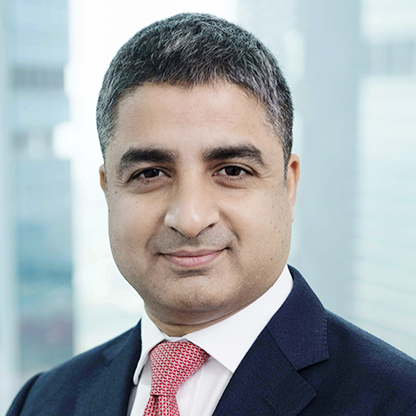 |
|
See-sawing markets in May abruptly reminded investors that volatility is not dead.
Financial markets again proved vulnerable to rapid changes in sentiment, especially in overcrowded trades, illustrated by the frantic race to buy European government bonds at any yield level. We believe what happened in May is just the beginning of a new volatility regime.
There are multiple ‘volatility fertilisers’ that could impact the global economy over the next few years. Specifically, deleveraging is just in its early stages; growing inequality and the widening gap between productivity and wages are keeping global demand subdued; structural and cyclical deflationary forces coexist and central banks are running short of tools, having injected massive liquidity and pushed interest rates close to zero, or even into negative territory.
The main foreseeable consequence of a sub-par growth world is that long-term expected returns for the principal asset classes are projected to be lower than in the past. Furthermore, six years of bull market conditions for both equities and bonds have resulted in a world of tight valuations and investors should expect the large part of returns come from alpha and not from beta.
So, what are the broader implications to the financial sector and investment policies? A major area of intervention as financial institutions continue to grow has centered on rules to strengthen financial stability. This has led to increased capital requirements for banks and a review of accounting standards for insurance companies and pension funds.
Deleveraging and de-risking have been the watchwords of this new framework. Bank deleveraging translated into a severe credit crunch for households and corporations. De-risking for insurance and pension funds has resulted in more conservative allocations, jeopardizing the potential achievement of investment objectives.
Another unintended consequence is the squeeze on liquidity in many areas of the market. The mismatch between demand and supply of credit and investment objectives being at risk are not trivial; an efficient credit allocation and an adequate level of income to supplement current or future spending needs are essential engines for economic growth.
This is even more relevant if we consider that global economic conditions are still weak and that zero interest rates policies (ZIRP) pose further challenges to the financial sector.
One of the most evident consequences of ZIRP is the worsening asset-liability management mismatch of some institutional investors. Insurance companies in Europe are a case in point, as they typically operate a duration mismatch between liabilities (long) and assets (shorter). The relatively high guaranteed rates offered by these companies make a prolonged low-yield scenario even more challenging. The option to change the allocation comes with higher risk, in a regulatory framework that tends to encourage the opposite - that is the de-risking of portfolios.
A challenging situation can also be observed in private pension systems. Low interest rates have added concerns to existing demographic headwinds, potentially weighing on the sustainability of defined benefit schemes and on the adequacy of retirement income from defined contribution plans. As interest rates fall, the current value of future expected liabilities rises and the funding gap tends to increase.
These challenges highlight major implications for both the financial sector and investors.
In the financial sector we believe asset managers can play a pivotal role by broadening their offering into non-traditional asset classes, such as infrastructure, small and medium enterprise loans and project financing.
In doing so, asset managers can help satisfy needs in areas traditionally serviced by other financial institutions. In addition, the recent institution of long-term vehicles in Europe (ELTIFs) is further recognition of the role asset management plays in channeling financial resources in an efficient and transparent way toward the real economy.
Investors will also have to take a more active role in satisfying future income requirements. This must address the fact that they will likely face lower benefits or will have to allocate more savings for income purposes, reducing their current standards of living.
In an environment where we believe investment returns will mostly come from alpha rather than from beta, exploring new sources of return becomes a paramount concern. We see investors’ options for meeting today’s challenges are:
§ A search for income across the board, whether it be in the equity or fixed income spectrum
§ A broader and more effective investment diversification through a multi-asset approach; and
§ An expansion of the investment universe through non-traditional asset classes.
Clearly, these new opportunities come with risk and in today’s markets liquidity is one of the major challenges, for illiquid assets and also traditionally more liquid ones, such as high quality bonds. This seems paradoxical in a world awash with injections of cash by central banks, however the reality is that risk has been moved from the sell side (banks) to the buy side (investors) due to tighter regulation.
Additionally, many of the buy side are on the same crowded trades. We see mini-crises triggered when market sentiment reverses, as shown by the recent bund sell-off – volatility rises and cross-asset correlations become unstable.
We believe asset management tools could help address some of these issues. Advanced risk budgeting, portfolio construction techniques and dynamic hedging are key to building more resilient and truly diversified portfolios.
Giordano Lombardo is the group chief investment officer of Pioneer Investments.









